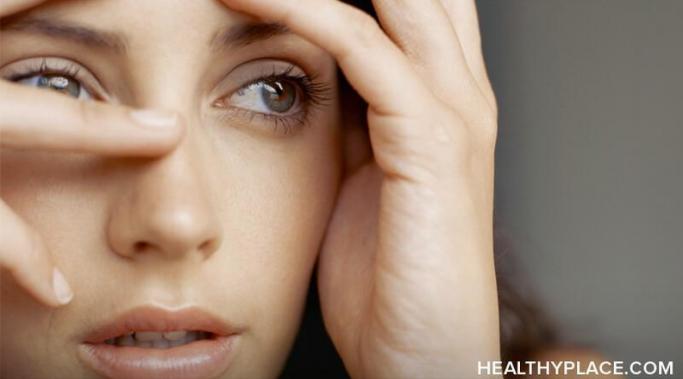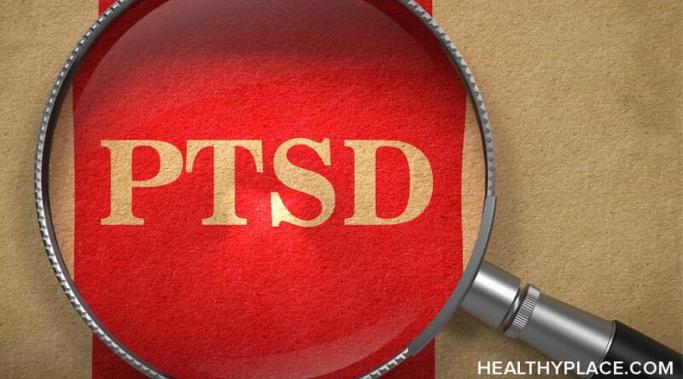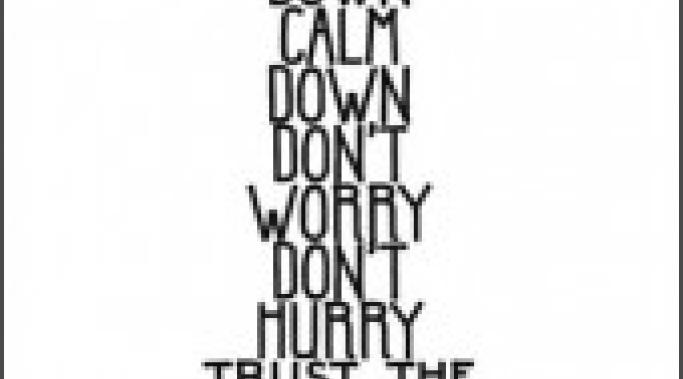Blogs
I think I talk about stress and the impact it can have on our mental health often in this blog. Hopefully, it's not exceedingly boring. This blog is a bit different in topic. Yes, it focuses of taking care of ourselves during periods of stress, but also on how we can take care of those we love if they become ill---while knowing when to pull back.
As I’ve mentioned, recently I’ve started volunteering for a local bipolar organization and what I do is give presentations to others. One part of the presentation is my “bipolar story.” It’s the story of my life before diagnosis, the process of treatment and whatnot. It’s long and, well, not that happy.
But one of the things that stands out is that treatments have turned me around, but then they stopped working and new treatments had to be found. And these new treatments were extremely hard to find. In fact, successful treatments have been found through guessing as often as through any type of clinical judgement.
And there’s a reason for this: bipolar disorder and bipolar disorder treatment are moving targets and our responses have to move with them.
As you would imagine, the management of HealthyPlace rewards me handsomely for penning Funny In The Head which weekly tickles America and beyond with a droll mélange of insouciance, absurdity, and je ne sais quoi, whatever that is. This lavish remuneration has enabled me to purchase a weekend house on the Cape, a weekend cape for wearing around the house, and a meticulously restored 1933 Hispano-Suiza J12 cabriolet. Well and good, you say, but man cannot survive exclusively on dessert!
Your point is well made. Despite the almost embarrassing tsunami of wealth bestowed by the Internet’s leading, (and most decorated), mental health website, I must, on occasion, venture out into what I shall refer to as – the valley of the shadow of K-Mart - in order to supplement my income and pay for the mundane necessities of life such as spats, plimsolls, and Fred Astaire biographies. Like so many writers before me, Mark Twain, Oscar Wilde, Dylan Thomas, and Antoine Marie Jean-Baptiste Roger, comte de Saint Exupéry, to name just the most universally familiar, I take to the lecture circuit where I beat my gums, and remaining teeth, in hopes of drumming up revenue.
Comparing ourselves to others is a recipe for disaster and lowers our self-esteem. Find out how to feel good in your own skin with tactic to help you stop comparing and start embracing your uniqueness.
Fear of losing someone you love is a common fear. (Or something happening to someone you love.) These fears comes from a great love. The fear is love. But once you realize the love, and take action on that, there is no point to the fear. Fear is immobilizing, love is energizing.
Remember, the biological reason for fear is to get us to act, after the action, the fear is pointless. (Worse than pointless, as it hurts you.)
A couple of weeks ago, I outlined how to transform overwhelming feelings. Today, I've been mulling: Is it possible to outline a flexible process for doing PTSD recovery work? While every survivor faces his/her own unique healing journey, the truth is, I think, yes, we do see universal similarities in the process.
Since I’ve started writing for HealthyPlace I’ve learned a lot about what you’re not supposed to say about mental illness. Some classics are the word “crazy” and not referring to oneself as “bipolar” directly.
In other words, I’m not allowed to say I’m a crazy bipolar.
There are many other things I’m not allowed to say too. “Mental health” can only be used in some cases whereas “mental illness” must be used in others. And then there’s “behavioural health” and the myriad of rules around talking about suicide. One could get permanent writer’s block worrying about ticking off some group of people who care about some specific word.
So I have a rule. I do what I want. And I tick off some people. It’s not on purpose; it’s just that if I didn’t, how in the heck would I write?
I am an Amy Grant fan, and one of my favorite songs is her version of "Grown-Up Christmas List". If you haven't heard the song, click here. It's okay. I'll wait.
The song makes you think. I, too, have a "Grown-Up Christmas List", with some of it concerning the mental health system.
There are many consequences to keep into mind when it comes to making the decision to stop using drugs and alcohol.. What I mean is that while abstaining from substances is a tremendously courageous thing to do, there are a number of considerations to keep in mind.
So is recovering from a physical injury. But in a different way. You know this and I know this. A broken leg--I've had one--left me in bed and hopping with one foot to the fridge. I was terribly bored. If I could have moved, I would have drawn pictures on the walls. Probably with a black sharpie. I was angry! My point? Recovering from mental illness can be boring---certainly when our lives used to be painted in manic colors--nice and neon but scary too. Sometimes, downright terrifying.

![MP900382658[1]](/sites/default/files/styles/blog_listing/public/uploads/2012/11/MP9003826581-731x1024.jpg?itok=Up3q4iwe)




![MP900404982[1]](/sites/default/files/styles/blog_listing/public/uploads/2012/11/MP9004049821.jpg?itok=yUCTqWP9)


